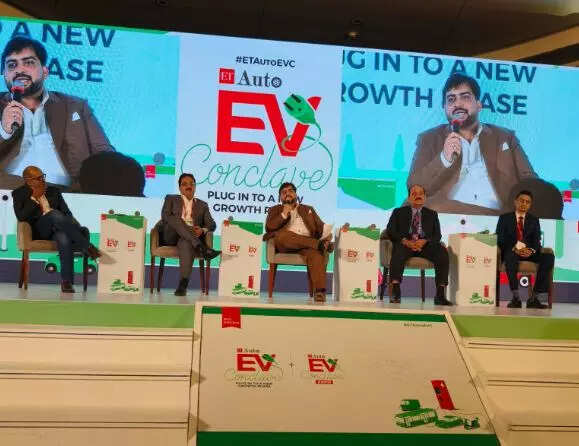
New Delhi: Auto dealerships are shifting towards sustainability, adopting measures like solar panels, energy-efficient lighting, and eco-friendly building designs. They promote green vehicle maintenance, waste reduction, and recycling. Education initiatives empower staff and inform customers. By integrating technology, incentivizing green practices, and collaborating with stakeholders, dealerships play a pivotal role in driving environmental responsibility, positioning themselves as leaders in the automotive industry’s push for a greener future.
The present day auto dealers are not only transiting for electrified India but also towards a sustainable India. Auto dealers are making a way towards sustainability, through the adoption of methods like solar panels, and energy-efficient designing eco-friendly ways.
The move towards sustainability could happen when there is holistic support from all the sides of industry be it OEMs, dealerships, and the Government. Adding to which, Vinkesh Gulati, Chairman, Research and Academy, FADA said, “For 100% dealers to work on that, we need a lot of support from our OEMs and a lot of government orders which restrict some things which are not good for the environment.”
Sustainability is a necessity for the world, which is not only a challenge but also a responsibility for everyone. OEMs work on the path of sustainability and achieve a greener future in automobiles, realizing what sustainability is in the auto sector is crucial.
About the role of OEMs in sustainability, Piyush Prasad, National Business Head, Hero Electric, said, “What the OEM fraternity is trying to do is to make guidelines simple for the leadership, guidelines sustainable for the dealership, guidelines effective for the dealership.” OEMs have to incorporate in their norms, and practices for the identification of sustainability towards a greener world.
Siddarth Bapna, Co-founder & Director, of BlueVerse India, talked about waste management during aftermarket services. BlueVerse’s vision is to provide the Vehicle Wash industry in India, with sustainable high-quality wash for its customers. “We saw that the industry was consuming 75 liters. We bought it down to four liters. We saw the industry consuming close to 55 to 70 kilowatts per wash to 35 kilowatts. Like the Bangalore site for us is developed to generate 200 grams of sludge per bike. Delhi, on the other hand, generates 400 grams north, which means you are developing 1000 bikes in steam sausage,” he said.
Praveen Nagpal, the executive VP of Kinetic Greens, highlighted the ways a sustainability business can be achieved, “Finances basically to have the basic investment each investment to have the finances for incremental business and have the stocks which are purchased liquid as fast as possible. So these are important ingredients for a sustainable business.”
Sustainability in the auto sector could be achieved through multiple methods, one such is the automation of certain processes. To which, Siddharth Bapna, Co-founder and Director, said, “There’ll be a complete conveyor system which will be like a tunnel. Your bike will go and your bike will come out and we will be catering to all the high throughputs which essentially means we will allow you to create stickiness with vehicle washing in your service business.” This will reduce the water usage for aftermarket services as frequent vehicle cleaning will help to make it quicker and better, this also supports the Green Credit Policy (GCP). Thus for regular usage affordability plays a key role for customers on which the company is currently working.
Hero Electric is making a step towards sustainability and a greener world through electric vehicles and a good disposable system. To this, “we also follow a very systematic waste disposal because things involved here are hazardous, they are dangerous and we have to have a process in which all these things are disposed of reasonably well,” Prasad said. Hero’s electric bikes are examples of sustainability in business, he added. Through the net metering policies of the government a lot of OEMs have benefited, Prasad said.
Sustainability could be achieved through creativity, be it finance, product, behavioral change, or economy. Transiting towards solar energy could be the first step toward a greener world.

